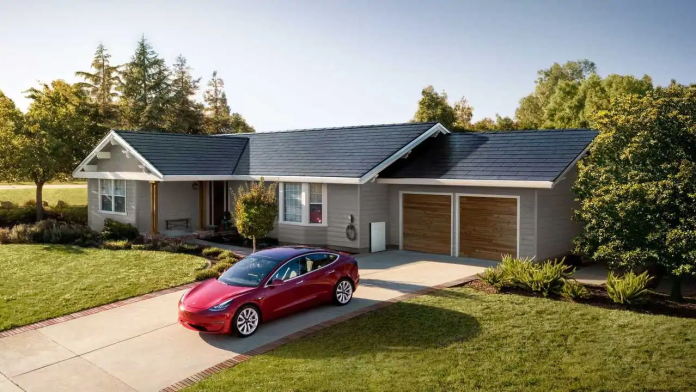Tech reviewer Marques Brownlee aka MKBHD, who has over 17 million subscribers on this YouTube channel and is known for his quality videos and unbiased opinion on everything tech-related, has released a one-year review of the Tesla Solar Roof system installed on his house.
In the long-term update embedded at the top of this page, Brownlee says that his home has Solar Roof tiles offering 29.313 kilowatts, as well as three Powerwall batteries that can store up to 40.5 kWh of energy.
In the 30-minute long video, MKBHD argues that he was already a Tesla vehicle owner, so it made sense to go with a Tesla renewable energy solution, even though it’s not the most readily available system out there, or the most cost-effective option.
The total cost of the system was a massive $120,948.04, but thanks to the federal tax credit, the end-of-year cost went down to around $93,000, which is still quite a lot. However, the YouTuber says that for the past year that he’s been benefiting from the solar system, the energy bills that he got in the mail amounted to $0.
That’s despite the fact that the system’s yield during the winter drops compared to the summer months, but even so, the net metering credits accumulated in the periods when the sun was shining the brightest made up for the days when energy production was lower.
With his house power consumption in mind, MKBHD estimates that he could recuperate the investment in under ten years.
Tesla unveiled its Solar Roof tiles in 2016, but volume production started in 2020, with the company claiming that covering a house with its photovoltaic shingles costs less than installing a new roof with separate solar panels and that the tempered glass that makes up the tiles is more durable than standard roofing elements.
Tesla also sells standalone photovoltaic panels that can be fitted on existing roofs, which the company calls “retrofit solar panels.” In total, Tesla claims it has installed over 500,000 solar systems, but it’s unclear how many Solar Roof installations have been completed to date.
A CNBC report from March claimed the Austin-based EV firm only installed 3,000 systems in the US, to which the official Tesla Energy Twitter account replied with: “This is incorrect by a large margin,” stopping short of offering additional details.






